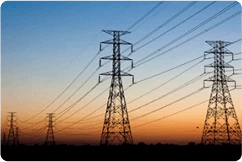- Country: Lebanon
- Summary: Final Evaluation Study - Partners for Justice Project
- LBT Ref No: 85897804
- Deadline: 06 Aug 2023
- Financier: Self Financed
- Purchaser Ownership: Government
- Tender Value: Refer Document
- Notice Type: Tender
- Document Ref. No.:
- Purchaser's Detail:Login to see full purchaser details. Login to see full purchaser details. Login to see full purchaser details. Login to see full purchaser details. Login to see full purchaser details. Login to see full purchaser details. Login to see full purchaser details. Login to see full purchaser details. Login to see full purchaser details.
- Description:
- Tenders are invited for Final Evaluation Study - Partners for Justice Project Closing Date: Sunday, 06. Aug 2023 Intervention Sector(s): Conflict Resolution Remuneration range: 6000 (USD) Duration of Contract: Expected to be kicked off in October 2023 and concluded by the end of December 2023 1. Context Search is seeking a consultancy team/firm who can conduct a Final Evaluation to understand the extent to which the project has contributed to reducing Violence Against Women and Girls (VAWG) in Lebanon. This study will also aim to assess the project-s progress towards its specific objectives taking into consideration the midterm evaluation study which was conducted at the end of phase 2 in September 2022. The Project Despite the various efforts made in Lebanon to achieve gender equality and end Violence Against Women and Girls (VAWG), the picture is still bleak. In 2021, Lebanon ranked 132nd out of 156 countries in the world on the global gender gap index, and 6th among 19 MENA countries (World Economic Forum (2018), Global Gender Gap Report Insight Report). Patriarchal social structures and practices limit women and girls- access to social and economic resources, political and leadership positions, and foster their discrimination in private and public spheres. They also contribute to high rates of VAWG in Lebanese society: one third of women in Lebanon have been victims of intimate partner violence, and one in four women are subject to some form of sexual assault )UN Populations Fund (2002), International Men and Gender Equality Survey, IMAGES, Lebanon Summary). Partners for Justice is a 51 month project started in September 2019 and due to close in December 2023, with the overall objective of reducing violence against women and girls in Lebanon. The project is being implemented in three phases, that logically followed and built on each other. The first two phases were implemented and finalized in 2020 and 2022 respectively, and were evaluated through a midterm evaluation that assessed the project against OECD criteria, and informed the design and implementation of the third phase, which started in October 2022 and will close in December 2023. This has been supported by the following specific objectives: SO.1 Empower men and boys to work with women to become allies and champions of gender equality and prevention of violence against women and girls; ER 1.1: Youth-led organizations are more aware of issues and assumptions related to the social constructions of masculinities and violence against women and girls; ER 1.2: Youth-led organizations show increased capacity to reflect on masculine identities and gender equality in their communities. SO.2 Promote a shift in communities- attitudes in target areas around the permissibility of, and assumptions related to violence against women and girls. ER 2.1: Media stakeholders and youth-led organizations are better able to address negative social dynamics that justify violence against women and girls and/or perpetuate victim blaming; and ER 2.2: Target communities and audience, especially male members, change attitudes towards the permissibility or justification of violence against women and girls. These phases included the below activities: Under the first objective: Youth-led organizations Mapping (phase 1) Capacity building program to youth organizations and their representatives on gender equality and positive masculinity to increase their skills on exploring and analyzing narratives of masculinities in the contextual settings where the youth organizations are working, and contributing to providing men and boys with a safe space to reflect on their own attitudes and behaviors. (phase 1 and 2 ) Participatory, Youth-led Gender and Masculinity Research (phase 1) Common Ground Approach (CGA) Training (phase 2) Safe Referral and Identification Training (phase 2) Period poverty awareness raising sessions and kits distribution (phase 3) Gender Mainstreaming training delivered to the CSOs (phase 3) CSO-led stakeholder mapping (phase 3) Community Dialogues and Action Plans implemented by the CSOs (phase 3) Under the second objective: Media Actors Selection (phase 1) Media for Social Change Working Sessions (phase 1) National Awareness and Advocacy Campaign (phase 1) National Awareness and Advocacy Campaign Launch Event (phase 1) Sexual and Reproductive Health and Rights (SRHR) Youth-led Initiatives (phase 1) Grant scheme implemented by the CSOs (phase 3) Cafe Chats for men implemented by the CSOs (phase 3) Roundtables and Briefing Papers (phase 3) Public Screenings of Films (phase 3) This Final Evaluation will assess phase 3 of the project by collecting data with the project-s direct and indirect participants, but should also take into consideration phase 1 and 2 for the analysis, to draw trends of changes in a holistic approach, as well as to evaluate the integration of strategic learnings. Target groups The first two phases of the project targeted 1) 30 youth representatives selected from 16 CSOs targeting the Lebanese population in five geographic areas: Beirut, Mount Lebanon, Bekaa, South, and North, 2) 10 media professionals who have participated in the media for social change working sessions and helped develop a national awareness media campaign in phase 1 and 3) the community members reached by the small grants and the media campaign including men (male local leaders, religious leaders, policy makers, educators, social workers, male family members), boys, women, and girls from a variety of backgrounds, who were encouraged to challenge their own perceptions on masculinities and VAWG, and were provided with safe spaces to constructively discuss these topics. The third phase of the project targeted 1) 15 youth representatives from 8 CSOs in three geographic areas and 2) the wider community reached by the dialogue sessions, cafe chats and grant scheme. This Final Evaluation is expected to collect data with the project-s direct and indirect participants of phase 3. 2. Goal and Objectives of Study The Final Evaluation Study should enable Search to inform future program design and will assess the overall success and effectiveness of the implemented project. The evaluation will also identify the added value, and/or comparative advantage of the intervention by understanding the degree to which the intervention has made a difference, positively or negatively, beyond the sheer of expected results and planned objectives. The evaluation therefore should include Outcome Harvesting (OH) activities, which will be integrated into the final report of the Final Evaluation. In specific terms, the Endline Evaluation has the following objectives: Assess the overall impact of the project based on evidence-based outcomes whether intended (according to the project-s logical framework) or unintended outcomes (positive or negative) and determine Search-s contribution to identified changes; Update the Project-s logframe and indicators with End-line values; Assess whether the project produced the effects as envisioned in the Theory of Change in addition to assessing the project-s Effectiveness and Impact, Efficiency and Sustainability as per the Organization for Economic Co-operation and Development - Development Assistance Committee (OECD DAC) evaluation criteria; and Capture good practices, compile lessons learned (i.e. ending September 2022), and draw specific recommendations to inform future programme design in a similar context. This study is expected to give specific focus to assessing the progress, effectiveness and relevance of the activities done in phase 3 with the organizations and the community members. 3. Key Questions of the Study Evaluation Questions The analysis will be focused on the following evaluation questions, organized by criteria. The study is expected to prioritize the collection of feedback from direct and indirect participants from the respective youth and media, and community members. Effectiveness and Impact: To what extent has the intervention been effective in meeting the essence of the Theory of Change and achieving its intended results, and planned outcomes? What unintended outcomes (positive or negative) emerged from project implementation? What factors (positive and negative) have had the greatest influence on the achievement/progress towards the desired change/objectives? To what extent has the intervention been able to contribute to longer-term effects (impact)? Was the level of partnership(s) with the CSOs appropriate to support the effective achievement of the intervention-s objectives? Efficiency and Value for Money: To what extent have resources been allocated and utilized in an efficient manner to achieve value for money? How efficient was the delivery of the intervention in terms of expenditure and implementation of activities? Sustainability: To what extent has the project advanced in building mechanisms to sustain the benefits produced? What are efforts required to improve and strengthen sustainability? To what extent did the project stakeholders (youths and youth organizations) show efficiency and ownership towards the project? Cross-Cutting Issues: To what extent have gender issues, persons with disabilities, Do No Harm, and conflict sensitivity been taken into consideration in design and implementation of phase 3? Adaptability: How and to what degree did the project adapt in response to reflection and learning outputs, monitoring data, and contextual factors and/or changes? What efforts have the project made to adapt to these changes, if any? and to what extent have these adaptations been effective and adequate? The evaluation questions and methodology for this assignment may need to be further elaborated by the experts in the inception report, particularly with planning of the use of OH (see Meth
- Documents:
If you are registered member, kindly login to view full details of this tender notice:
CLICK HERE TO LOGINFinal Evaluation Study - Partners for Justice Project - Lebanon Tender
The SEARCH FOR COMMON GROUND, a Government sector organization in Lebanon, has announced a new tender for Final Evaluation Study - Partners for Justice Project. This tender is published on LebanonTenders under LBT Ref No: 85897804 and is categorized as a Tender. Interested and eligible suppliers are invited to participate by reviewing the tender documents and submitting their bids before the deadline on 2023-08-06.
The estimated tender value is Refer Document, and full details, including technical specifications and submission requirements, are provided in the official tender documents. Ensure all submissions meet the criteria outlined to be considered for evaluation.




